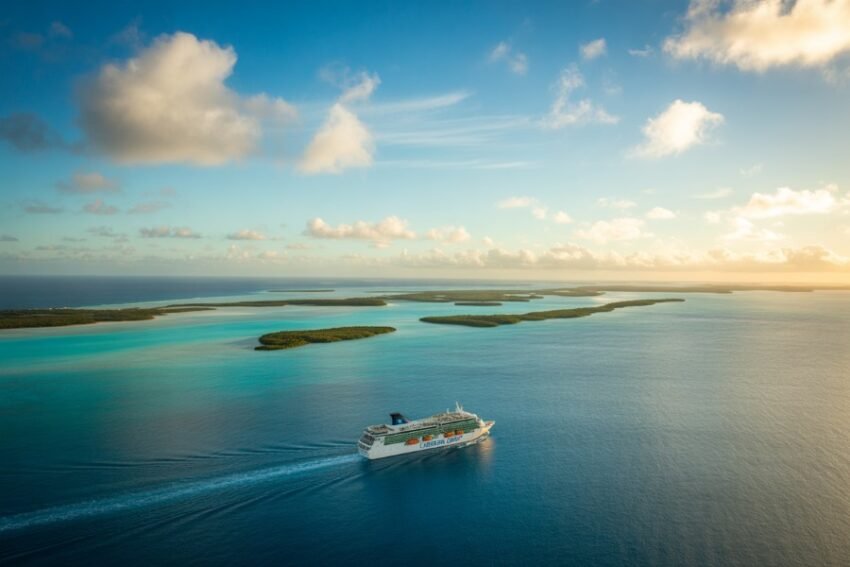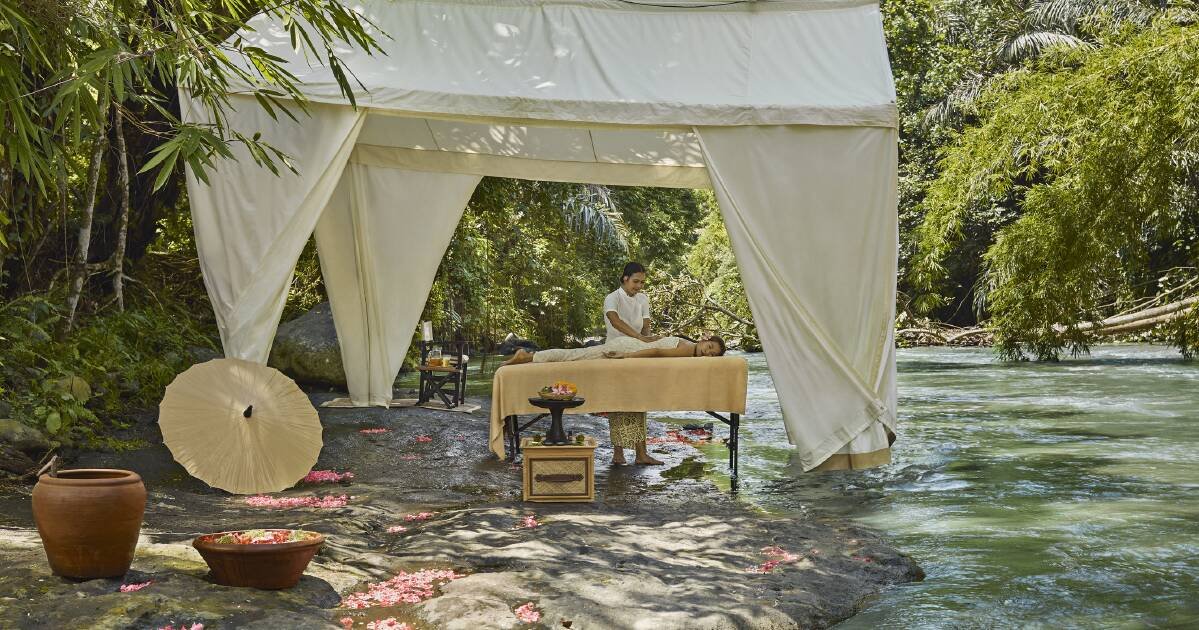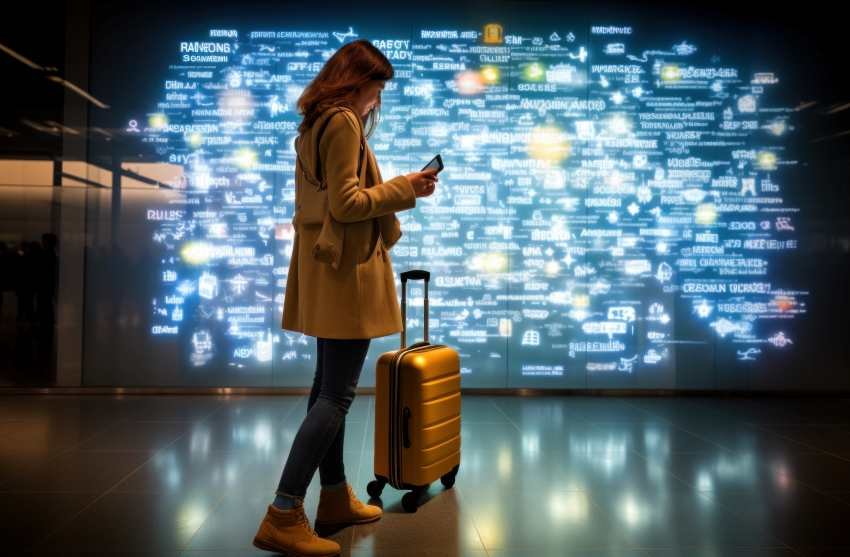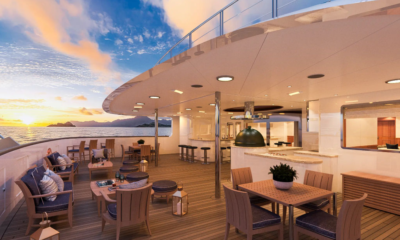Travel Trends
Eight Worldwide Travel Trends South Africa Can Embrace To Boost Its Tourism

Published on
August 6, 2025 |
By: TTW News Desk
As travellers worldwide are prioritizing wellness, sustainability, as well as immersive experiences, South Africa tourism can explore some unique opportunities for catering to these evolving preferences.
A recent trend report by highlights the key shifts transforming the travel landscape, from AI-curated sleep retreats to educational trips based on sustainability. These insights offer South Africa a chance to align with the growing global travel movement.
1. Travel That Tells A Story
Trend: Local Heritage-Inspired Stays
Travellers are increasingly seeking more than just a place to stay. They want an immersive experience that connects them to local history and culture. Hotels worldwide are drawing inspiration from local heritage, such as brutalist architecture or pyramid-themed suites.
SA Opportunity:
South Africa tourism can leverage its rich cultural heritage by focusing on township tourism, indigenous safari lodges, and collaborations with local artists. Authentic, design-forward experiences are in high demand, especially those that support local communities and provide Instagram-worthy moments.
2. The Sleepcation Thing Is Real
Trend: Wellness and Sleep Retreats
Top luxury brands have introduced sleep-focused retreats. These experiences combine diagnostics, meditation, and AI-assisted environments to promote better sleep.
SA Opportunity:
South Africa’s natural landscapes, such as the forests of Knysna and the stargazing pods in the Karoo, offer a perfect backdrop for wellness and sleep retreats. These locations can cater to the growing demand for restorative getaways.
3. Eco Everything
Trend: Sustainable Amenities Take Flight
Airlines and travel brands are moving towards eco-friendly offerings, such as plastic-free and biodegradable kits. Conscious travellers are becoming more aware of their environmental impact.
SA Opportunity:
South Africa’s hospitality sector can embrace sustainability by revisiting their amenity offerings. Adopting sustainable packaging, biodegradable options, and transparent environmental policies could make a significant impact and set local businesses apart.
4. Science + Wonder
Trend: Educational, Science-Infused Travel
Travel is increasingly blending learning with leisure. From space-themed resorts to marine biology experiences, educational tourism is on the rise.
SA Opportunity:
South Africa’s unique biodiversity, alongside stargazing locations like Sutherland, positions the country to offer science-based tourism. Family-friendly and educational experiences focused on conservation, astronomy, and the environment would appeal to curious travellers, especially Gen Z.
5. Gen Z Is (Still) Everywhere
Trend: Digital-First, Experience-Rich Travel
Gen Z travellers seek value and personalization in their travel experiences. Visual appeal is crucial, with social media-ready moments influencing travel decisions.
SA Opportunity:
South African destinations can cater to this by offering affordable, immersive experiences that are visually captivating. Creating experiences optimized for social media platforms can help even mid-tier offerings go viral.
6. Art Meets Experience
Trend: Instagrammable Exhibits and Pop-ups
Art is becoming interactive. Museums and exhibitions are transforming into tactile, shareable moments. Pop-up art experiences are a growing trend globally.
SA Opportunity:
South Africa’s vibrant arts scene offers an opportunity for unique, shareable experiences. Consider augmented reality street art tours, wine farms doubling as art spaces, or gallery pop-ups in stunning natural environments. These experiences would be highly Instagrammable and draw art lovers worldwide.
7. AI Is The New Travel Agent
Trend: AI Travel Planners and Chatbots
Many travel planning apps now use AI to curate personalized itineraries and offer real-time support. AI is streamlining travel planning and enhancing the customer experience.
SA Opportunity:
Local tourism operators and boards can integrate AI into their offerings. By providing customized trip planning — from safaris to urban tours — South African businesses can meet the increasing demand for personalized travel.
8. Proximity Escape
Trend: Hybrid Camping Experiences
Today’s travellers crave nature without sacrificing comfort. The demand for camping experiences that offer Wi-Fi, comfort, and a touch of luxury is rising.
SA Opportunity:
South Africa can tap into this trend with glamping experiences located near major city centres or along popular travel routes like the Garden Route. Offering luxury tents or Wi-Fi-enabled pods in the bush will appeal to those looking for a balance of nature and comfort.
South Africa Tourism: Why It Matters
The worldwide travel and tourism industry is expected to reach 16 Trillion USD by the year 2034, and South Africa tourism needs to adapt to stay competitive. Today’s travellers seek not just movement but meaning. South Africa, with its vast cultural richness and diverse landscapes, is ideally positioned to meet these new expectations.
By aligning with these emerging trends, South Africa can capitalize on the growing demand for immersive, purposeful travel experiences.
Travel Trends
Discover the Latest Wellness Trends in 2025: From Sleep Concierges to Luxurious Retreats in Bali, Switzerland, Bhutan, Japan, Costa Rica, and More

Published on
August 8, 2025 |
By: TTW News Desk
The global wellness tourism industry is experiencing a remarkable surge, with its value expected to exceed a trillion dollars annually in the coming years. As more individuals seek to prioritize health, well-being, and self-care, wellness travel has evolved significantly. Gone are the days of rigid, deprivation-based wellness programs like goat yoga or strict calorie-restricted retreats. Today, travelers are seeking experiences that offer relaxation, rejuvenation, and indulgence, while still promoting physical and emotional well-being.
With this new direction, the focus has shifted from simply surviving wellness retreats to genuinely thriving. Today’s wellness travelers want experiences that promote balance, holistic healing, and personal growth, and they are willing to journey across the globe to find the best retreats that align with their desires. From sleep concierges in luxury hotels to serene spa experiences in tranquil settings, here are the top six wellness trends to watch in 2025 and the destinations leading the way.
1. Retreats that Delight, Not Deprive
In 2025, wellness travel is shifting towards experiences that promote well-being without the punitive restrictions of old. Gone are the days of retreats where guests are restricted to bland food and forced to perform grueling physical challenges. Instead, the focus is on enjoying a holistic approach to health, where guests are pampered, nourished, and encouraged to relax and unwind while still engaging in activities that enhance their wellness.
Destinations like Absolute Sanctuary on Koh Samui, Thailand provide a perfect example of how wellness retreats are evolving. Rather than focusing on deprivation, the sanctuary offers a range of programs that include yoga, meditation, nutritious meals, and daily massages. Guests are treated to a combination of bodywork therapies and relaxation techniques designed to rejuvenate both mind and body, leaving them feeling truly renewed. This approach has transformed wellness retreats into indulgent getaways, where guests not only engage in wellness activities but also savor the experience in a balanced and enriching environment.
Similarly, Switzerland’s spa clinics have become famous for their focus on luxurious wellness treatments, offering everything from high-tech diagnostic tests to personalized health programs. In these serene locations, the emphasis is on comfort, relaxation, and achieving a sense of rejuvenation without the harshness of traditional wellness regimens. Wellness retreats in Bali also focus on pampering with wellness massages, meditation, and clean, organic cuisine that nurtures the body without deprivation.
2. Sleep Concierges: Restorative Travel with a Personal Touch
One of the latest wellness trends gaining traction in 2025 is the rise of sleep concierges at luxury resorts and hotels. These specialized professionals focus on creating the perfect environment for sleep by adjusting everything from room temperature and lighting to bedding and scent. The role of the sleep concierge is to ensure that guests experience the deepest, most restorative sleep possible during their stay, a critical aspect of overall well-being.
Destinations like Costa Rica’s luxury eco-resorts have pioneered this trend, integrating sleep science with eco-friendly, luxurious accommodations. Visitors seeking a restful retreat can now enjoy sleep-focused services, including personalized sleep consultations and tailored sleep programs. The high emphasis on natural sleep aids, including herbal teas and aromatherapy, allows visitors to achieve complete relaxation.
Hotels and resorts in Switzerland have also embraced the sleep concierge trend, where they offer luxury services aimed at promoting deep rest, especially in Alpine resorts known for their tranquil environment. The combination of stunning natural surroundings and sleep-enhancing practices creates an ideal escape for those seeking a rejuvenating break.
3. Soundbath Therapy and Meditation Experiences
The latest wellness trend in 2025 is the rise of soundbath therapy and immersive meditation experiences. Sound baths use sound frequencies and vibrations from instruments like gongs, singing bowls, and tuning forks to promote deep relaxation, reduce stress, and improve emotional well-being. This therapeutic experience is being integrated into wellness retreats and spas worldwide, providing visitors with a truly unique way to unwind.
Bali, renowned for its spiritual retreats, is a hotspot for sound bath therapy. Bali’s tranquil atmosphere and healing culture make it the perfect place to embrace this new wave of wellness. Guests at resorts and yoga retreats can partake in sound therapy sessions that help them tune into their bodies, enhance mindfulness, and find inner peace.
Other popular destinations like Bhutan, a haven for meditation and spiritual tourism, offer immersive experiences that combine meditation with sound healing practices. The serene environment of Bhutan’s monasteries and retreats complements the therapeutic benefits of soundbath therapy, offering travelers a peaceful escape from the stresses of modern life.
4. Digital Detox Retreats: Unplug and Reconnect
In today’s hyper-connected world, more travelers are seeking a complete break from technology to reconnect with themselves and the natural world. Digital detox retreats are becoming increasingly popular, providing a sanctuary for those looking to disconnect from their devices and immerse themselves in a peaceful environment.
Bhutan’s silent retreats are a perfect example of how these destinations are catering to the demand for digital detoxes. With its pristine natural surroundings and strong cultural focus on mindfulness, Bhutan offers travelers the chance to unplug and experience life in a more balanced way. These retreats encourage visitors to disconnect from their phones and digital devices, allowing them to fully immerse in nature, meditation, and self-reflection.
Similarly, eco-friendly resorts in Costa Rica have embraced digital detox programs that encourage visitors to leave behind their phones and embrace a more mindful lifestyle. From yoga sessions to nature walks, these retreats offer a holistic experience designed to rejuvenate the mind and body while fostering a deeper connection with nature.
5. Adventure Wellness: Combining Adrenaline and Self-Care
For travelers who crave both adventure and wellness, adventure wellness retreats are on the rise. These retreats combine physical challenges with holistic well-being practices, allowing participants to push their limits while also taking time to relax and rejuvenate. From hiking in the Swiss Alps to surfing in Bali, adventure wellness experiences offer a balance between adrenaline-pumping activities and moments of reflection.
Switzerland is a prime destination for adventure wellness, with activities like hiking, skiing, and biking surrounded by the stunning Swiss Alps. These physical activities are paired with wellness experiences like spa treatments, guided meditation, and nutritional guidance to create a comprehensive wellness experience.
Bali, known for its yoga retreats and spiritual energy, also offers adventure wellness experiences. Visitors can participate in surfing lessons, jungle treks, and challenging yoga sessions, followed by restorative treatments like massages and body wraps that help them recover from the physical exertion.
6. Immersive Wellness: Personalization and Technology Integration
The future of wellness tourism lies in immersive wellness experiences that blend high-tech solutions with personal well-being practices. These personalized experiences cater to each individual’s specific needs, whether it’s through fitness tracking, customized wellness programs, or high-tech spa treatments that use the latest advancements in technology.
Japan is at the forefront of immersive wellness, where tech-driven wellness experiences are integrated into luxury resorts and spas. For example, some hotels offer wellness rooms equipped with state-of-the-art devices that monitor sleep patterns, stress levels, and physical activity, providing real-time data to customize each guest’s wellness journey.
At Bali’s luxury resorts, immersive wellness goes beyond the typical spa offerings, with resorts providing personalized wellness retreats tailored to individual goals, combining advanced diagnostic tests, fitness training, and wellness therapies for a truly unique and transformative experience.
Conclusion: The Future of Wellness Travel
The wellness tourism sector in 2025 is rapidly evolving, with travelers seeking more than just physical rejuvenation—they’re looking for holistic, immersive experiences that nourish the mind, body, and spirit. From sleep concierges and sound therapy to digital detoxes and adventure wellness, the trends of 2025 highlight the increasing demand for personalized, cutting-edge wellness experiences.
As destinations like Bali, Costa Rica, Switzerland, Bhutan, and Japan continue to lead the way in offering wellness-focused travel, the future of the industry looks promising. Travelers are embracing the concept of self-care on a global scale, eager to explore new ways to improve their well-being while enjoying unique and enriching cultural experiences. Wellness travel in 2025 is not just about relaxation—it’s about creating a deeper connection with oneself, nature, and the world around them.
Travel Trends
Top wellness travel trends to explore in 2025 – and fads you can say goodbye to | Blue Mountains Gazette

In November, Crystal will set sail on its second annual wellness retreat cruise, featuring special treatments at Aurora Spa, nutrition consultations, art journalling, meditation under the stars, breathwork and mental wellbeing coaching. All that, plus some of the best cruise cuisine (the only Nobu at sea), should keep body, mind and soul happy.
Travel Trends
Corporate and Government Travel Decline Leads to Sabre’s Lower-than-Expected Air Bookings, Joining Destinations Like the U.S., Europe, India, China, Australia, and Japan in Shifting Global Tourism Trends for 2025

Published on
August 8, 2025 |
By: TTW News Desk
Sabre, a leading global travel technology company, has experienced a significant downturn in air bookings, largely driven by reduced corporate and government travel. The company missed its revenue and earnings targets in the second quarter of 2025 and has revised its full-year expectations downwards as a result. Sabre, which has a higher exposure to corporate and government travel compared to its competitors, is now grappling with the ripple effects of these travel sectors’ decline, impacting its performance and the broader travel and tourism industry.
The Global Impact of Corporate and Government Travel Reductions
Sabre’s challenges are reflective of a broader global trend affecting the travel industry, as corporate and government travel has fallen sharply in several countries. Governments around the world have scaled back travel due to economic constraints, security concerns, and evolving work-from-home policies. Meanwhile, corporations in key markets are reducing business travel due to continued shifts in remote work, stricter budgets, and an overall slowdown in global business activity.
In the United States, a major market for corporate and government travel, federal agencies have cut down on travel spending, focusing instead on digital and remote solutions to reduce costs. Similarly, in Europe, particularly in Germany and the UK, corporate travel has seen a decline as businesses embrace hybrid work models and more cost-efficient alternatives, such as virtual meetings, over traditional face-to-face interactions.
Countries such as Australia and Canada, which have long been dependent on government and corporate travel for significant portions of their tourism and hospitality industries, have also reported downturns in this sector. The impact has been severe, as government-sponsored conferences, trade missions, and official business travel typically boost local economies and hospitality demand.
In Asia, markets like Japan and South Korea have similarly witnessed a pullback in both corporate and government travel. Japan’s corporate travel sector remains cautious amidst fluctuating domestic and international markets, while South Korea’s government has reduced international missions, limiting opportunities for tourism-related to business events.
This reduction in travel has translated into softer demand for related services such as flights, hotels, and car rentals, which directly affects the tourism sector globally.
Sabre’s Struggles Reflect a Wider Trend in the Travel Industry
In the second quarter of 2025, Sabre’s air bookings fell by 1% year over year, with corporate bookings experiencing a more significant downturn compared to leisure travel. Government and military travel saw the most significant declines, exacerbating the shortfall in air distribution bookings. Despite expectations of industry stabilization, Sabre faced a higher-than-expected dip in bookings, particularly in June and July. This unforeseen weakness led the company to revise its guidance for the rest of 2025, forecasting flat or low-single-digit revenue growth for the full year and reduced air distribution volume growth to 4-10%.
Kurt Ekert, CEO of Sabre, attributed the decline to the continued pullback in corporate and government travel, which has been a key driver of the company’s performance in previous years. Sabre’s exposure to these sectors means it is more vulnerable to shifts in the corporate travel landscape, as evidenced by its missed earnings targets.
Government and Corporate Travel Decline Affects Tourism
The decline in corporate and government travel is reshaping the landscape of global tourism, which has been slow to recover post-pandemic. Business travelers have long been a cornerstone of the global tourism industry, particularly for destination cities that rely on conferences, conventions, and official events to drive foot traffic. Without these events, tourism revenues in cities like Washington D.C., Berlin, and Tokyo have seen a noticeable dip.
As corporate travel continues to contract, tourism authorities in several countries are grappling with the impact on local economies. For instance, the drop in international and government-related tourism to major convention centers in the U.S. and Europe has led to a decline in hotel occupancy, restaurant business, and transport services, all of which are vital to tourism infrastructure.
Additionally, countries that depend on government-sponsored tourism, such as India and China, have been adversely affected. Both countries had large portions of their tourism economies tied to diplomatic visits, international trade fairs, and government-sponsored tourism initiatives. With these avenues narrowing, local tourism businesses are scrambling to find new sources of revenue.
The Ripple Effect on Hospitality and Travel Agencies
The fallout from reduced government and corporate travel is not just limited to tech companies like Sabre. It is also having a significant impact on the hospitality and travel agency sectors. Hotels, which often see a large portion of their bookings from business travelers, are adjusting their strategies to cater to the rise in leisure travel. However, the shift is not always enough to offset the loss of corporate and government bookings.
Travel agencies, too, are feeling the pinch. Many agencies, which rely on business and government contracts for large volumes of bookings, have had to diversify their offerings to attract leisure tourists. While leisure travel has surged in certain regions, it has not fully compensated for the loss of high-margin corporate business.
This shift in travel behavior has also caused disruptions in the airline industry, where many carriers rely on corporate and government contracts for their long-haul, premium services. The rise in remote work has led to a reduction in business-class bookings, while government travel restrictions and limited budgets have left airlines with fewer opportunities for high-revenue flights.
Shifting Strategies in the Travel Industry: A Focus on Leisure and Alternative Markets
As corporate and government travel declines, companies like Sabre are shifting their focus to other sectors of the travel market. Sabre, for instance, is now placing greater emphasis on leisure travel, where demand has remained more stable. The company is also focusing on increasing its hotel distribution bookings, which saw a 2% growth in the second quarter of 2025. By diversifying its portfolio and expanding into other markets, Sabre is trying to mitigate the effects of reduced corporate and government travel.
The global travel industry is also looking towards alternative and emerging markets to sustain growth. There has been a noticeable uptick in leisure travel, particularly to less traditional destinations, where travelers seek more off-the-beaten-path experiences. Countries that are often overlooked for corporate and government travel, such as those in Africa and Southeast Asia, have experienced growth in leisure tourism, drawing new visitors with their unique cultural offerings.
As international travel returns, some regions are seeing increases in tourism that is not dependent on business travel. These include destinations known for nature tourism, adventure travel, and cultural tourism. For example, places like Costa Rica, New Zealand, and Vietnam are attracting leisure travelers who are looking for unique experiences, diversifying the global tourism landscape away from traditional business-heavy destinations.
The Road Ahead: Navigating the Changing Landscape of Global Travel
While the decline in corporate and government travel presents challenges for companies like Sabre, it also creates an opportunity for the travel industry to evolve. The growing demand for leisure travel, coupled with the rise of digital tools for virtual meetings, presents an opportunity for companies to redefine their strategies and adapt to changing consumer behavior. As the travel industry shifts toward a more leisure-focused model, it will need to embrace flexibility and creativity to thrive in a post-pandemic world.
For Sabre, the road ahead will require recalibrating its expectations and continuing to focus on emerging sectors. While the decline in corporate and government travel has temporarily stunted growth, the broader shift towards leisure travel and alternative markets offers new opportunities. The company will need to expand its offerings, focusing on hotels, leisure travel, and emerging markets to weather the storm.
Ultimately, the effects of the decline in corporate and government travel are far-reaching, but the tourism industry’s ability to adapt will determine its resilience and long-term success in the evolving global travel landscape.
-

 Brand Stories3 weeks ago
Brand Stories3 weeks agoBloom Hotels: A Modern Vision of Hospitality Redefining Travel
-

 Brand Stories2 weeks ago
Brand Stories2 weeks agoCheQin.ai sets a new standard for hotel booking with its AI capabilities: empowering travellers to bargain, choose the best, and book with clarity.
-

 Destinations & Things To Do3 weeks ago
Destinations & Things To Do3 weeks agoUntouched Destinations: Stunning Hidden Gems You Must Visit
-

 Destinations & Things To Do2 weeks ago
Destinations & Things To Do2 weeks agoThis Hidden Beach in India Glows at Night-But Only in One Secret Season
-

 AI in Travel3 weeks ago
AI in Travel3 weeks agoAI Travel Revolution: Must-Have Guide to the Best Experience
-

 Brand Stories1 month ago
Brand Stories1 month agoVoice AI Startup ElevenLabs Plans to Add Hubs Around the World
-

 Brand Stories4 weeks ago
Brand Stories4 weeks agoHow Elon Musk’s rogue Grok chatbot became a cautionary AI tale
-

 Brand Stories2 weeks ago
Brand Stories2 weeks agoContactless Hospitality: Why Remote Management Technology Is Key to Seamless Guest Experiences
-

 Asia Travel Pulse1 month ago
Asia Travel Pulse1 month agoLooking For Adventure In Asia? Here Are 7 Epic Destinations You Need To Experience At Least Once – Zee News
-

 AI in Travel1 month ago
AI in Travel1 month ago‘Will AI take my job?’ A trip to a Beijing fortune-telling bar to see what lies ahead | China
















You must be logged in to post a comment Login